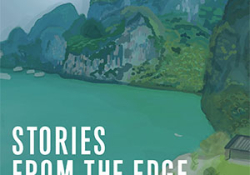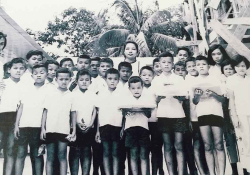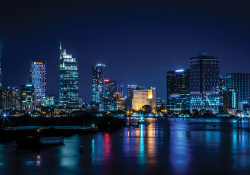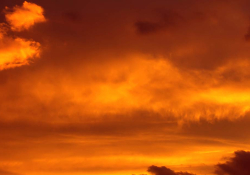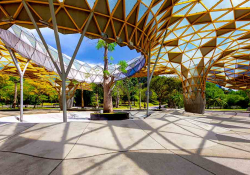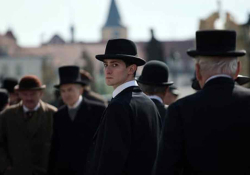Once More to the Beach
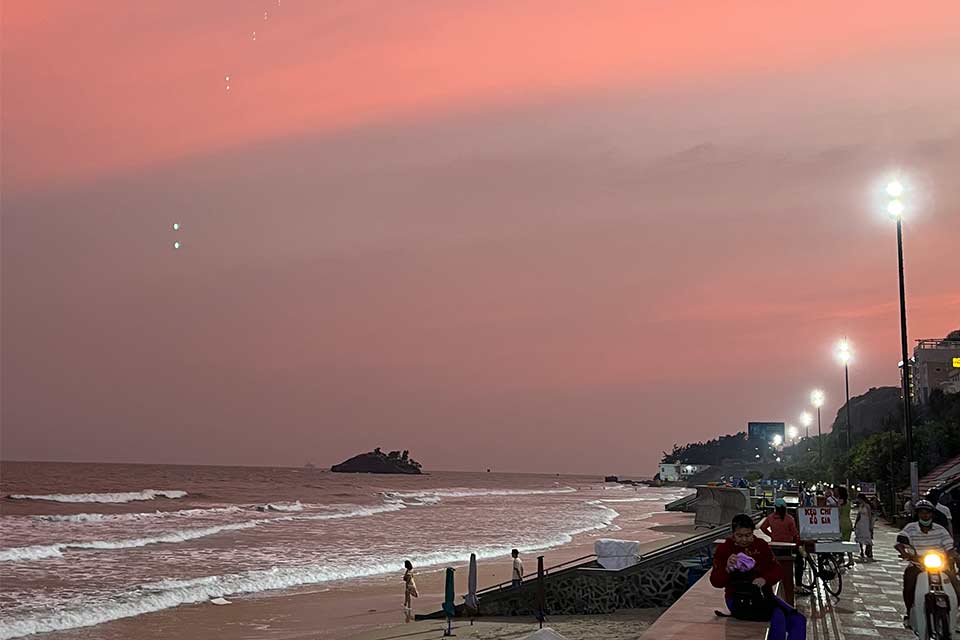
The author’s childhood ended, more or less, on the beach of Vung Tau, Vietnam, “where magic and prayers failed.” In this lyric essay, he returns to the scene as a double refugee—in person and in memory.
One afternoon, a long time ago, I found myself alone on the beach of Vung Tau, Vietnam, a seaside town near Saigon, staring out to sea. The war was going badly. Hue and Danang had fallen. The central highlands were next. Saigon was in panic. The communist army was advancing unimpeded. I was eleven years old and small for my age. The beach was nearly empty. The wind and waves roared in my ears. With my arms outstretched, forming strange patterns in the air, I chanted magical incantations.
But what was I doing there by myself?
It is impossible to reach back through all these years to claim to know that boy intimately. For a long, long time in America, that moment had escaped me—until recent years. But I remember all too well what led to it. Near the end of the war, my father and his older brother, both generals in the South Vietnamese army, were put under arrest by President Nguyen Van Thieu, along with five other generals. After ordering troop withdrawals from other regions to protect Saigon and its vicinity, Thieu feared a military coup. So, he had the generals kept under observation in a posh trailer park inside the Ministry of Defense next door to the Tan Son Nhat Airport.
My family and my uncle’s family had come to Vung Tau under Father’s instructions. American navy ships were to dock there to evacuate many well-placed and connected families, or so he was told. We stayed at a rather large villa with flame trees in the garden that began to bloom red, and the sea was but across the street. One afternoon, I remember the women all sat together at a dining table by the open window on the second floor, diligently removing diamonds and rubies from their bracelets and rings with small pliers. They each had a sewing kit that held buttons, thimbles, needles, and threads, but the balls of wax were like stars. In the tropical sunlight, the wax had softened enough so that the women could insert their precious stones inside to hide them—all this in preparation for the violence that could happen on the ship.
They worked diligently as they chatted, but suddenly, a scream: a diamond had flown off my auntie’s ring to the floor and disappeared somewhere underfoot. It was difficult to find against the mostly white tile floor, and they scrambled to search for it, to no avail. So, they called for me. A small boy, I abandoned my pile of French comic books and slipped easily under the table and chairs to finally find the thing glinting near my grandmother’s foot. I remember holding it up for all to see. In the sunlight, it sparkled between my tiny fingers, and everyone laughed with relief.
And I remember feeling happy. A catastrophe was descending upon my world, and I had no way to process it. Finding that diamond was my only contribution to my family, but, of course, in retrospect, it wasn’t much.
A catastrophe was descending upon my world, and I had no way to process it.
Perhaps it was the talk of robbery on the high seas, of murder and rape that frightened me, and it forced me to seek peace alone on the beach. Perhaps it was boredom. Whatever it was that sent me walking, I left the villa and took to strolling the beach across the street by myself. It was a rare excursion since I seldom went anywhere alone back then, and my mother was too occupied to forbid me. I walked and walked. I had wanted, as my cousins once dared me, to walk the beach’s entire length alone. Usually crowded on the weekend, the beach was now empty.
Then, with no one watching, I stopped. My feet sinking into the sand, I made gestures in the air. I began to chant incantations that I made up, then resorted to prayers to the buddhas, the ones my devout Buddhist mother taught me. I gestured in the winds as if tugging at some invisible rope. I cannot claim that I know exactly what went through that boy’s mind, but I can guess: perhaps somehow, with a combination of magic and prayers and made-up martial arts prowess, he could, like the heroes of his martial arts novels, summon an American ship to materialize at the horizon to rescue his family and clan?
How long I performed this magical dance I cannot remember, but it ended when I heard my name called out. I turned and saw my sister. She had come to look for me, a look of despair on her face. Bad news, she said, the American ships were not coming. We were to go to Saigon right away in search of other escape routes.
Soon after this, Thieu fled South Vietnam. The generals were thankfully released from their confinements, and my father quickly found passage for us out of Vietnam. On the morning of April 28, 1975, two days before Saigon fell, we piled into a crowded cargo plane and flew out to the Philippines. After that, we boarded yet another plane for Guam, where army tents were being hastily set up on freshly bulldozed ground to welcome America’s latest huddled masses.
I remember the hot, dry wind, the uneven ground, the long lines under a punishing sun for food rations. When news came on the BBC that Saigon had fallen, the sounds of weeping and wailing could be heard throughout that tent city.
Our stay, however, was quite short. As if swept by a whirlwind, not a full month had passed and we found ourselves deposited in a small apartment at the end of Mission Street, an area known as Top of the Hill, a fog-filled working-class neighborhood at the southern end of San Francisco, where my oldest brother had been living as a foreign student.
My first few weeks in America were full of numbness and confusion, and I suffered from a recurrent nightmare in which I was left behind in our home in Saigon and was chased by faceless men in black pajamas. We wore donated jackets and ate on the floor. We had no news of our father, who’d stayed behind. But then the phone rang: my father had escaped Vietnam after us on a naval ship. We all wept with joy. By midsummer, father joined us. Although impoverished and now a refugee family subsisting at the edge of the city, we were whole again.
Then my recurrent nightmares ended, and I began to change. If at the beginning of summer I was frightened and feeling lost in the vastness of America, by summer’s end I was exploring the hills of my new home with new friends from the neighborhood, discovering how to curse in English with gusto, and learning the rules of baseball—and how, albeit badly, to catch one.
Soon, my voice started to break. It broke at the same time English was just sinking in, so much so that it felt as if the new language was transforming me inside out. And more, it gave me a psychic distance from the sorrow that portends to all exiles, now more or less owning my family.
My voice started to break at the same time English was just sinking in.
At home I was quiet, almost a mute, but in school I was sassy, a loudmouth. On the weekends, I went to public libraries and devoured American novels. In my free time, I watched sitcoms or hung out with friends. We played tennis, frisbee, and touch football. We listened to American songs on the radio and comedians on vinyl disks. We watched Looney Tunes and laughed our heads off.
That is, I swallowed America whole. By the time I entered high school a couple of years later, I was someone else. I even changed my name to Andrew. Vietnam, like an old map of some irretrievable world to be stored away along with the sadness and grief, inevitably faded. For some years I blocked it out by refusing to speak my mother tongue, though I heard it plenty, of course—spoken nightly by the adults in our new home in America, often in a mournful, nostalgic tone. I pretended to have amnesia. With newly formed American ambitions and sensibilities, I went on blissfully with my new life instead.
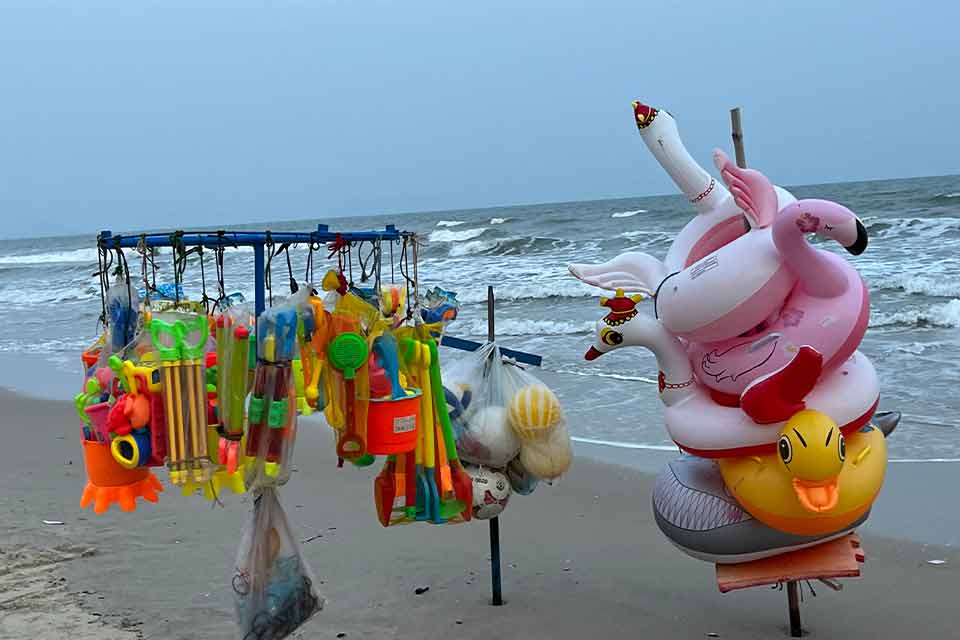
But why am I telling you all this?
Well, because I am writing these words from Vung Tau, back where I once stood almost five decades ago. I have decided after all these long years to finish the trek on the beach that my younger self wanted to take. And I want you to know how sometimes, through life’s many strange twists and turns, the path toward the future can deliver you right back on the same shore from which you prayed for deliverance.
But by no means is this an easy road home. For some years yet the war in which so many died, and so many more died fleeing as boat people in the aftermath, became mere stories to be told on occasions to impress classmates and friends and, later on, lovers, something that marked me as slightly different but not by much. But then, after college, instead of going to medical school, I studied writing and became a writer and journalist instead.
I finally saw my homeland again in the early 1990s. But I saw it by then as an American journalist covering the story of an erstwhile ravaged country emerging out of the Cold War. I was far more obsessed with my profession and what I could write than how I was or was not connected to my homeland. Vietnam, I told myself, was a destination and no longer my destiny. There were other destinations, after all, all the same: Laos and Cambodia, Thailand, Hong Kong.
And it would take many more years and many more visits, many assignments and stories told, and a few heartbreaks before I could even entertain, slowly, the idea of living in my homeland again.
But to the present tense . . .
These days, in retirement, I spend my time between San Francisco and my birth city, Saigon, or Ho Chi Minh, as others call it. But while in Vietnam, a country full of young people eager to move forward, I always have to balance my childhood memory of the long-lost world with the reality of a quickly modernizing country, which is moving toward the future at a breakneck pace.
Once a child from a privileged family living in Saigon, now I am a lone traveler in it. My family and clan have long ago fled overseas and scattered; my beloved parents are now gone. And on those few occasions when the heat is unbearable in Saigon and I muster enough resolve, I take that rare trek to Vung Tau or to resorts nearby, to be more precise. Though I welcome the sea breeze, I dread the inevitable melancholia, the kind that doesn’t overwhelm but lingers, on and off, for the duration. So, the few times here, I take to staying at resorts outside of town, avoiding it all together.
It is easy to understand why. Upon watching shrieking children running about on the sand, their fussy mothers chasing after them, families and friends gathering on blankets—all laughter and screams—my own childhood reverberates. Indeed, to us children during the Vietnam War, Vung Tau was pure joy, a welcome reprieve compared to hot and restrictive Saigon, which offered nothing but school and tiny streets and, because of the war, curfews. I remember riotous card games among the relatives, playing hide-and-seek with my cousins. I remember a lot of singing and the adults telling ghost stories and us children shrieking in fright.
An eleven-mile-long projection that juts into the sea, Vung Tau dates easily back to the fourteenth century, when ships came, anchored in the port, and traded with the locals, then still part of the Khmer kingdom. Vũng Tàu literally means area of ships. The sand here is rather coarse; its shade drifts from brown to black, and the sea seems to have never quite gotten off from gray to blue. At certain times, the water can become so polluted and greenish, especially where the river, carrying Saigon’s debris, dumps into the sea, that there are days when swimming is only for the very brave and foolish. And on the weekends and holidays, half of Saigon seems to have escaped to Vung Tau and somehow managed to re-create another overstuffed, congested Saigon by the sea.
But while a well-traveled tourist might see a third-rate resort town, for me, layer upon layer of history is buried deep in these sands, and they make my few rare visits difficult. Though Vung Tau has turned into a bona fide resort town, and its waterfronts are lined with megasized hotels, condo complexes, and convention centers—yes, there’s even an amusement park by the sea—it is not the new seaside town that I see. Instead, that old memory of me on that beach comes back and exerts a kind of odd and unexpected power over me.
For many, their childhood faded slowly, and for some, it even dawdled and stretched out long into adulthood. Mine, however, ended on a specific geographical marker: it ended, more or less, on the beach of Vung Tau, where magic and prayers failed.
In retrospect, I was a double refugee. Abruptly forced out of my beloved homeland, I also migrated out of my childhood wonders at the very same time. Then, in the new country, I moved so far and fast away from that little boy that by the time I looked back, I couldn’t claim to truly know him at all.
Between that boy and me, there’s a kind of psychic disruption that grew into a chasm—it is as if somehow there’s still a part of me standing there on the sand, hoping for miracles to occur, and then the man who grew up elsewhere, became worldly, and is now cusping on old age.
Once upon a time, he was a pampered child. The youngest of three siblings in a privileged household of South Vietnam, the boy did not yet know the full meaning of the word exile. So immersed in games of tag, so buried in comic books and kung fu novels, the boy never saw the sunburn coming, despite his mother’s incessant admonishments. He had lived so fully in the present, in a world where magic and ghosts were real, where talking nightly to the ancestors and the Buddhas was the norm, whereas the man who crossed so many borders, who learned to live comfortably on strangers’ shores, and who witnessed empires rise and fall, and who wrote about human cruelty and heartbreaks, well, he couldn’t help but feel the relentless passage of time with each footstep.
But still, here he is, finally, once more on the old beach, retracing the steps the boy once took. Running along its length, now there’s a well-paved walkway, and he trudges on it. With the salty wind, the lapsing waves, the laughing children running about on the sand, he thinks of the irony: how the most Americanized and youngest member of his family is the only one to come back after all these decades and to dare imagine that the country from which he fled might very well be his once more.
And the sea rumbles and roars. Standing amidst wind and waves at twilight, he feels his age as his right toe begins to throb. He fears it might be yet another onset of gout. He looks at his watch. It is getting late. He contemplates taking a taxi back to the hotel to pop some antacids before that seafood dinner arranged by his friends.
Out in the distance on the sand, he sees two young boys playing. While their mother talks incessantly on the phone nearby, they’re immersed in a martial arts fight. The boys make gestures in the air. “Palms of Sky Dragons,” one yells. “Fingers of yang lightning,” the other responds. Their silhouettes dance in the gloaming, laughter ringing loud, their joy infectious.
The man watches the boys while he, too, mimics those gestures, but then he stops, feeling awkward. It is no good: no force of magic will come out of these wizened fingers. But in that effort, he sees something else he hadn’t seen before: that boy of long ago was not just trying to save his family and clan through the imagination. On the deepest level, he was trying, in his own way, to protect the world of spirits and ghosts of heroes flying on clouds that he inhabited and believed in until the very last moment. He was, that is, trying to save his childhood. What the man feels then is not bitterness or nostalgia but something else he hasn’t previously felt: a tenderness and compassion for his younger self.
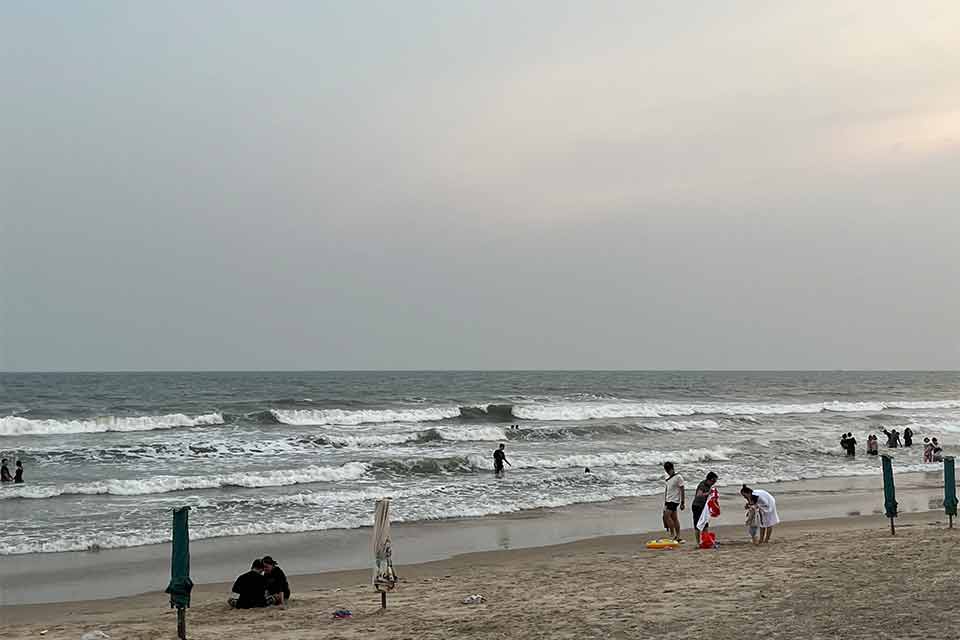
On the deepest level, he was trying to protect the world of spirits and ghosts of heroes flying on clouds that he inhabited and believed in until the very last moment.
And that perhaps is enough.
Proust once wrote that “the real voyage of discovery consists not in seeking new landscapes but in having new eyes.” But to go home after so long may require the resolve to swallow one’s grief with all one’s senses and find a way to bridge—through poetry, stories, and songs—the many fragmented selves.
The streetlights now come on, and the sky shifts from pink to nostalgic gray above the man. And, across the street, a sizable amusement park lights up; its Ferris wheels and merry-go-rounds glimmer alluringly in iridescent lights. The promenade now sparkles and glows toward the horizon, with fewer and fewer stragglers on the walkway.
The wind turns slightly colder as night falls. His toe throbs painfully now. Still, after some hesitation, he decides to soldier on. “I’d better try, at least once, to cover the length of this beach before dinner,” he tells himself. “Next time here, if there is such a next time, I may not be able to cover the entire distance again.”
San Francisco

